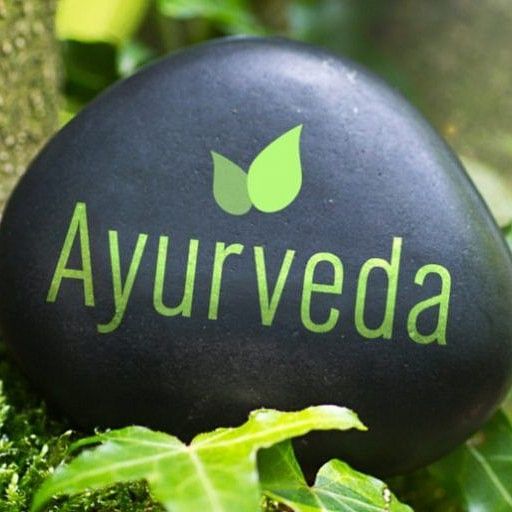- 7 Reasons to Discover Ultimate Serenity with Naturopathy
- Embrace Wellness Winter
- 7 Wellness Tips For Your Longevity
- World Mental Health Day: Essential Insights for Balanced Life
- 5 Ways to Achieve Optimal Digestive Health
- Exploring the Health Benefits of 5 Popular Types of Massages
- How Spas Rejuvenate the Body, Mind, and Soul
- What is Swedish Massage
- Valuka Sweda
- Januvasti
- Annalepam
- Navara Kizhi
- Shiro Vasti
- Udhwarthanam
- Podikizhi
- Pizhichil
- Upanaham
- Merudanda Vashti
- Netra Tarpana
- Greeva Pichu
- Greeva Vasti
- Merudanda Pichu
- What is Ayurveda?
- The Benefits of Practicing Ayurveda
- Ayurveda: An Alternative Medicine
- Techniques and Benefits of Shiro Abhyanga in Ayurveda
- The Ayurvedic Cleanse of Panchakarma
- How Padabhyangam Therapy Heals Your Body and Mind
- Elements in Ayurveda and their Significance
- Live The Tranquil Life
- Detox and Rejuvenate with Acupuncture
- Lifestyle Management with Yoga and Meditation
- A Unique Approach To A Healthy Diet
- Weight Management with Ayurveda
- Wellness Retreats to Celebrate Women's Day
- Best Stress Relief Techniques
- Benefits of Massage Therapy
- 10 Quick & Easy Fresh Juice Recipes
- Everything you need to know about Holistic Health Assessment
- Essence of Yoga
- Why Must You Practice Yoga Regularly?
- The Basics of Ayurveda
- Boost Your Immunity With Naturopathy Amidst The Pandemic
- 5 Ways To Bring Down The Risk Of Seasonal Diseases
- 5 Amazing Tips To Improve Your Immunity
- 4 Everyday Habits That Might Be Harming Your Gut Health
- Reiki: The Healing Touch
- Your Ultimate Guide To Chakra Meditation
- Embrace the Naturopathic Way of Life
- Best Therapies for Chronic Neck Pain
- 4 Things Not To Do After A Filling Meal
- 8 Things That Weaken Your Immune System
- Try These 12 Things to Beat Panic and Stay Calm
- Beat Stress With These Foods During COVID-19
- Diet and Depression: What to Eat, What to Avoid
- Is Depression Keeping You Sedentary? Here is what you can do
- A Low FODMAP Diet For Better Digestive Health
- Want to Increase Sperm Count? Go the Nature's Way
- Home Remedies to Manage your PCOS
- Try Ayurveda to get pregnant faster
- Try Fertility Yoga to Support Reproductive Health
- Should You Ditch Dairy Products For Weight Loss?
- 6 Principles of naturopathy you should know about
- 9 Home Remedies For Digestive Issues
- Ayurvedic Remedies to treat COVID-19
- Importance of Doshas
- Acupuncture: The perfect healing therapy to boost fertility
- Fighting COVID-19 with Ayurveda
- A positive attitude will help you deal with COVID-19
- Practice yoga to boost mental health during COVID-19
- What to do when taking a deep breath just isn't enough
- Four Things To Gift Your Dad This Father’s Day
- Simple Steps To Spend Your 4th Of July Weekend
- 5 Amazing Things to Do During This Fall When You Plan Your Trip
- 4 Therapies for women dealing with stress & anxiety
- Importance of Ayurvedic Treatment in The Modern World
- What is Naturopathy & how does it benefit you?
- 10 Winter Wellness Tips For Your Health
- Weekend Getaways & Health Benefits
- The Importance Of Having Corporate Retreats
- 6 Reasons Why You Should Go To Health and Wellness Retreat
- 6 Habits to Consider in New Years Resolutions
- 5 Tips to Welcome Healthy Spring Season
- 6 Wellness Tips to Reignite the Spark of Love this Valentine Day
- 6 Wellness Tips for Longevity
- Catskills Most Sought Destination for Wellness Lovers
- 5 Springtime Wellness Tips
- How Detoxing Your Body Can Contribute to Your Holistic Wellbeing
- Unlock Secrets of Longevity with Spring Rejuvenation
- World Health Day: 6 Ways To Embrace The Power of Good Health
- Things To Do Around The Bethel Woods Center of Arts
- 5 Healthy Habits to Attain Longevity
- Mother's Day Give Her Gift of Wellness
- How To Deal With Anxiety and Depression
- Yoga For Beginners
- How to Make the Most of International Yoga Day
- Benefits Of Shirodhara Therapy To Restore Your Wellbeing
- Stress Taking A Toll On Your Health?
- How a Wellness Retreat Can Help You Get Through Panic Attacks
- Elevating Your Mind, Body, and Soul with Effective Wellness Prog
- Unlock the Secret to Restful Nights: YO1's Insomnia Management P
- Tips for a Healthier Labor Day Weekend
- Why Choose a Wellness Retreat Over a Typical Holiday
- 5 Ways to Unlock Optimal Health and Wellness
- World Vegetarian Day Health Benefits
- Catskills Resort Perfect Wedding Venues
- Stress Management Program for Mind Body
- Role of Healthy Diet in Longevity
- Enhancing Couple Wellness this Valentine Day
- 6 Anxiety Management Tips
- Wellness Benefits of Spa Treatments
- Womens Wellness Retreat A Step by Step Guide
- Weight Management Why It Matters
- Tips for Spring Season
- Self Care Simple Strategies
- 7 Spring Season Foods to Boost Health
- How Yoga Can Improve Physical and Mental Health
- Top Natural Remedies for Spring Allergy Relief
- How Hydrotherapy Impact the Mind and Body
- Tips For Managing Daily Anxiety and Stress
- Celebrate International Yoga Day with Top 10 Yoga Poses
- 10 Nutritious Foods to Manage Type 2 Diabetes
- Meditation Techniques to Calm Anxious Mind
- What to Expect During the Ayurvedic Detox Program?
- Top 10 Benefits of Acupuncture Therapy
- What to Expect From Your First Yoga Retreat
- YO1 Resorts Featured in Smile 2 Movie
- Bethel Woods Center for the Arts: All You Need to Know
- Everything You Need to Know About Deep Tissue Massage
- Ways to Celebrate Labor Day
- Best Wellness Resorts in Catskills New York
- 5 Common Myths About Weight Management
One of the biggest questions people have when practising a more natural lifestyle is whether it’s important to eat organic food. Eating organic has become increasingly mainstream in the last decade, and data shows that sales of organic foods are steadily on the rise. Healthy food is the basis of existence, it is important to keep a track of what food is being consumed in order to live a youthful, healthy and positive life.
But is it really beneficial to health? What foods should you consider eating organic? What types of diets should you follow? Are they safer? Are they more nutritious? Let us take a closer look at what it means to eat organic foods. High fibre foods and high protein foods help maintain a healthy lifestyle.
But is it really beneficial to health? What foods should you consider eating organic? What types of diets should you follow? Are they safer? Are they more nutritious? Let us take a closer look at what it means to eat organic foods. High fibre foods and high protein foods help maintain a healthy lifestyle.
What is Organic Food?
A broad definition of organic food is any food item that is produced by methods that comply with the standards of organic farming. The standards of what is organic may vary from nation to nation, however, organic farming includes practices that promote ecological balance. Depending on the regulating agency, organic products may restrict the use of certain pesticides and fertilizers in the farming process. Organic foods typically do not contain industrial solvents or synthetic food additives.
According to the U.S. Department of Agriculture (USDA) certified organic foods are grown and processed according to federal guidelines pertaining to a variety of factors including soil quality, animal raising practices, pest and weed control, and use of additives.
Also, according to the USDA, organic produce must be grown on soil that had synthetic fertilizers and pesticides for three years prior to harvest.
When it comes to organic meat, U.S. regulations require that animals are raised in living conditions accommodating their natural behaviours, such as the ability to graze on pasture, fed 100% organic feed, and not administered antibiotics or hormones.
If your product contains a "USDA Organic" label, that means it contains at least 95 per cent organic ingredients and was approved by an expert to make sure the farmer followed the strict USDA requirements.
Organic is Not the Same as Natural
If you see the word “natural" on a food label, you should know it doesn’t mean the same as "organic." In general, if you see the word "natural" on a food label, it means that it has no artificial colors, flavors or preservatives. Unlike organic products, a natural product does not refer to the methods or materials used to produce food ingredients.
Other common food labels should also not be confused with organic labels. For example, the labels "free-range" or "hormone-free," do not indicate organic certification.
Is Organic Food Better for You?
Those that advocate organic food say it is better than conventional food because it’s safer, more nutritious, and better for the environment.
However, many argue there’s still not enough data to prove that organic food is better for you.
When it comes to whether organic food contains fewer pesticides, research has shown that organic food does contain less pesticide residue than conventional food. Having said that, the amount of pesticide residue found in conventional food is still well below the level that the Environmental Protection Agency (EPA) considers unsafe.
In the U.K., 2009, a report published by the Food Standards Agency concluded that organic produce did not deliver significant health benefits compared to non-organic counterparts.
The true question remains, whether the small doses of pesticide residue add up over time and cause health issues in the long run.
Which Organics Produce to Choose?
Going completely organic can be expensive, and so it might help to pick and choose what you buy. But which ones should you go for?
Every year, the Environmental Working Group (EWG) puts out a special guide to pesticides in produce called the “Dirty Dozen.”
According to the EWG, the following 12 produce varieties contain the highest traces of pesticides. This means it might be worth the effort to go the extra mile and buy organic when it comes to the following:
1. Strawberries
2. Spinach
3. Kale
4. Nectarines
5. Apples
6. Grapes
7. Peaches
8. Cherries
9. Pears
10. Tomatoes
11. Celery
12. Potatoes
At YO1 Longevity & Health Resorts, one can learn about lifestyle management. Which includes amazing information about a balanced diet. We focus on diet food for weight loss and healing. A vegan diet is followed to revitalize the body with all missing nutrients.
BLOG
GET IN TOUCH
Please take a moment to fill out the form below with your contact information. A YO1 Longevity & Health Resorts representative will reach out to you with additional information.


















